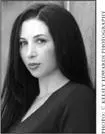Ellen Block - The Language of Sand
Здесь есть возможность читать онлайн «Ellen Block - The Language of Sand» весь текст электронной книги совершенно бесплатно (целиком полную версию без сокращений). В некоторых случаях можно слушать аудио, скачать через торрент в формате fb2 и присутствует краткое содержание. Жанр: Старинная литература, на английском языке. Описание произведения, (предисловие) а так же отзывы посетителей доступны на портале библиотеки ЛибКат.
- Название:The Language of Sand
- Автор:
- Жанр:
- Год:неизвестен
- ISBN:нет данных
- Рейтинг книги:4 / 5. Голосов: 1
-
Избранное:Добавить в избранное
- Отзывы:
-
Ваша оценка:
- 80
- 1
- 2
- 3
- 4
- 5
The Language of Sand: краткое содержание, описание и аннотация
Предлагаем к чтению аннотацию, описание, краткое содержание или предисловие (зависит от того, что написал сам автор книги «The Language of Sand»). Если вы не нашли необходимую информацию о книге — напишите в комментариях, мы постараемся отыскать её.
The Language of Sand — читать онлайн бесплатно полную книгу (весь текст) целиком
Ниже представлен текст книги, разбитый по страницам. Система сохранения места последней прочитанной страницы, позволяет с удобством читать онлайн бесплатно книгу «The Language of Sand», без необходимости каждый раз заново искать на чём Вы остановились. Поставьте закладку, и сможете в любой момент перейти на страницу, на которой закончили чтение.
Интервал:
Закладка:
THE STORY BEHIND THE STORYThe idea for this novel came from a collection of happy memories as well as a single, heartrendingly sad one.Grief defies description. The colossal awe experienced in the wake of the attacks on September 11 simply cannot be compacted into words. In the aftermath of such a monumental catastrophe, language seemed painfully insufficient. For a writer like myself, that was a difficult and confounding feeling. A week after the attacks, I saw a woman from my hometown of Summit, New Jersey, being profiled on 60 Minutes as she went from hospital to hospital, searching in vain for her husband, who had been killed in the Twin Towers. She was a woman I’d passed by in the grocery store countless times, and there she was on national television, crying, scared, bereaved, a victim.Like so many, I was deeply affected by that day’s events. I couldn’t comprehend the magnitude of one survivor’s grief, let alone that of thousands. Since the attacks, I’d wanted to create a character whose life was dedicated to language and definitions, but who must deal with that which cannot be defined. The character who evolved was a lexicographer named Abigail Harker, a widow who has lost her entire family in an accidental house fire. Haunted by the death of her husband and child, she volunteers for a position as caretaker at a lighthouse on a remote island called Chapel Isle. There she discovers that the lighthouse may be haunted by the ghost of its former keeper.This fictional isle is loosely based on Ocracoke Island in North Carolina’s Outerbanks, where I spent summers during my childhood. I remember my trips there fondly and always wondered what the island would be like once tourists like me went home. The sense of separation and intense isolation coupled with the close-knit camaraderie of a small community made it an ideal destination for a character at a crossroads and an apt setting for a woman at odds with her own nature, a connoisseur of words grappling with indescribable sorrow.People often wonder what an author has in common with her characters. In this case, my protagonist, Abigail Harker, and I share one main preoccupation. As a lexicographer, language is the foundation of her career. As an author, it’s the lifeblood of mine.In order to cope with her grief and with the possibility of a resident ghost at the lighthouse where she lives, Abigail must challenge the sanctity of language, thereby challenging herself. Her dogged pursuit of definitions has almost eliminated the necessity to feel. However, moving to Chapel Isle forces her to face her emotions, posing the questions: What’s real? What isn’t? and is it words that make the difference?I believe Abigail would agree that words are both limiting and limitless all at once. In the process of writing The Language of Sand , I attempted to display language at its most capable and lush while trying to show its many infuriating inadequacies, a contrast that breeds conflict as well as insight. What are books—and words—for if not that?
READING GROUP QUESTIONS AND TOPICS FOR DISCUSSION1. How did the setting affect the plot and why?2. Would you want to visit Chapel Isle?3. Are there situations and/or characters you can identify with? If so, how?4. Do you feel as if your views on a subject, such as ghosts or grief, have changed after reading this novel?5. If you could change something about the book, what would it be and why?6. What motivates a given character’s actions, such as Abigail’s, Sheriff Larner’s, or Merle’s? Do you think those actions are justified or ethical?7. Which characters grow or change during the course of the novel? In what ways?8. Who in this book would you most like to meet? What would you ask or say?9. Which character do you like the most and why? The least, and why?10. What passage from the book stood out for you?11. Is the novel plotor character-driven? In other words, does the plot unfold quickly or focus more on the characters’ inner lives?12. Did you expect the book to end the way it did or were you surprised?13. If you could rewrite the ending, would you? What would you change?14. Can you pick out a passage that sums up the central theme of the book?15. If you were to talk to the author, what would you want to know?16. Were the characters’ struggles addressed in a believable way?17. Why do you think the author chose to tell the story in this manner?18. What is your favorite scene and why?19. Does Abigail learn something about herself or view the world differently during the course of the book? If so, what does she learn?20. What is the central conflict of the plot? Is it internal to a particular character (a psychological conflict), or is it external, having to do with character vs. character?21. If one or more of the characters made a choice that had moral implications, would you have made the same decision? Why or why not?22. How would the book have been different if it had taken place in a different time or place?23. What are some of the themes in the novel? How important are they?

ABOUT THE AUTHOREllen Block is currently at work on the sequel to The Language of Sand . She lives in Los Angeles.
The Language of Sand is a work of fiction. Names, characters, places, and incidents either are the product of the author’s imagination or are used fictitiously. Any resemblance to actual persons, living or dead, events, or locales is entirely coincidental.
A Bantam Books Trade Paperback Original
Copyright © 2010 by Brett Ellen Block
Reading group guide copyright © 2010 by Random House, Inc.
All rights reserved.
Published in the United States by Bantam Books, an imprint of The Random House Publishing Group, a division of Random House, Inc., New York.
BANTAM BOOKS and the rooster colophon are registered trademarks of Random House, Inc.
RANDOM HOUSE READER’S CIRCLE and colophon is a trademark of Random House, Inc.
Chapter-opener definitions are from The Random House Webster’s Unabridged Dictionary , 2nd edition by Random House, Inc., copyright © 2001, 1998, 1997, 1996, 1993, 1987 by Random House, Inc. Used by permission of Random House, Inc.
Library of Congress Cataloging-in-Publication Data
Block, Brett Ellen.
The language of sand : a novel / Ellen Block.
p. cm.
eISBN: 978-0-553-90761-2
1. Grief in women—Fiction.2. Self-realization in women—Fiction.
3. Psychological fiction. I. Title.
PS3602.L64L36 2010
813′.6—dc22 2009052876
www.randomhousereaderscircle.com
v3.0
Table of Contents
Cover
Title Page
Dedication
Chapter 1
Chapter 2
Chapter 3
Chapter 4
Chapter 5
Chapter 6
Chapter 7
Chapter 8
Chapter 9
Chapter 10
Chapter 11
Chapter 12
Chapter 13
Chapter 14
Chapter 15
Chapter 16
Chapter 17
Chapter 18
Chapter 19
Chapter 20
Chapter 21
Chapter 22
Chapter 23
Chapter 24
Chapter 25
Chapter 26
Acknowledgments
A Reader’s Guide
About the Author
Copyright
Интервал:
Закладка:
Похожие книги на «The Language of Sand»
Представляем Вашему вниманию похожие книги на «The Language of Sand» списком для выбора. Мы отобрали схожую по названию и смыслу литературу в надежде предоставить читателям больше вариантов отыскать новые, интересные, ещё непрочитанные произведения.
Обсуждение, отзывы о книге «The Language of Sand» и просто собственные мнения читателей. Оставьте ваши комментарии, напишите, что Вы думаете о произведении, его смысле или главных героях. Укажите что конкретно понравилось, а что нет, и почему Вы так считаете.












